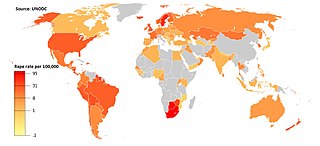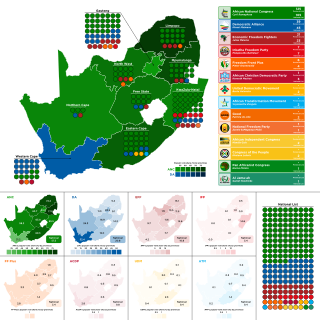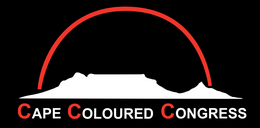Feminism is a range of socio-political movements and ideologies that aim to define and establish the political, economic, personal, and social equality of the sexes. Feminism holds the position that modern societies are patriarchal—they prioritize the male point of view—and that women are treated unjustly in these societies. Efforts to change this include fighting against gender stereotypes and improving educational, professional, and interpersonal opportunities and outcomes for women.

The Northern Ireland Women's Coalition (NIWC) was a minor cross-community political party in Northern Ireland from 1996 to 2006.
Chemical castration is castration via anaphrodisiac drugs, whether to reduce libido and sexual activity, to treat cancer, or otherwise. Unlike surgical castration, where the gonads are removed through an incision in the body, chemical castration does not remove organs and is not a form of sterilization.

The Freedom Front Plus is a right-wing political party in South Africa that was formed in 1994. It is led by Pieter Groenewald. Since 2024, it is a part of the current South African government of national unity together with the African National Congress (ANC), the Democratic Alliance and other parties.

Rape culture is a setting, as described by some sociological theories, in which rape is pervasive and normalized due to that setting's attitudes about gender and sexuality. Behaviors commonly associated with rape culture include victim blaming, slut-shaming, sexual objectification, trivializing rape, denial of widespread rape, refusing to acknowledge the harm caused by sexual violence, or some combination of these. It has been used to describe and explain behavior within social groups, including prison rape and in conflict areas where war rape is used as psychological warfare. Entire societies have been alleged to be rape cultures.
The Heinrich Böll Foundation is a German, legally independent political foundation. Affiliated with Alliance 90/The Greens, it was founded in 1997 when three predecessors merged. The foundation was named after German writer Heinrich Böll (1917–1985).
Equity feminism is a form of liberal feminism that advocates the state's equal treatment of women and men without challenging inequalities perpetuated by employers, educational and religious institutions, and other elements of society. The concept has been discussed since the 1980s. Equity feminism has been defined and classified as a kind of classically liberal or libertarian feminism, in contrast with social feminism, difference feminism, gender feminism, and equality feminism.
State feminism is feminism created or approved by the government of a state or nation. It usually specifies a particular program. The term was coined by Helga Hernes with particular reference to the situation in Norway, which had a tradition of government-supported liberal feminism dating back to the 1880s, and is often used when discussing the government-supported gender equality policies of the Nordic countries, that are linked to the Nordic model. The term has also been used in the context of developing countries where the government may prescribe its form of feminism and at the same time prohibit non-governmental organizations from advocating for any other feminist program. In this sense it is possible to distinguish between a liberal state feminism found in Western democracies such as the Nordic countries, and a somewhat more authoritarian state feminism that is often also linked to secularism, found e.g. in certain Middle Eastern countries.
Since the December 2010 revolution in Tunisia and protests across the Middle East and North Africa (MENA) began, Tunisian women have played an unprecedented part in the protests. Habib Bourguiba began instituting secular freedoms for women in 1956, such as access to higher education, the right to file for divorce, and certain job opportunities. Women in Tunisia enjoy certain freedoms and rights that are denied to women in neighboring countries, although the social norms have shifted since 2011.
Feminist views on transgender topics vary widely.

The Workers and Socialist Party (WASP) is a Marxist and Trotskyist political party in South Africa affiliated to International Socialist Alternative.

The Women's Equality Party (WEP) was a feminist political party set up in the United Kingdom in 2015. The idea was conceived by Catherine Mayer and Sandi Toksvig at the Women of the World Festival, when they concluded that there was a need for a party to campaign for gender equality to the benefit of all. The launch meeting was on 28 March 2015 under the title "The Women's Equality Party needs you. But probably not as much as you need the Women's Equality Party". The party's full policy was launched by its then-leader Sophie Walker at Conway Hall on 20 October 2015. In January 2020, Mandu Reid took over as the party's leader.

The Social Democrats are a social democratic political party in Ireland. Led by Holly Cairns since March 2023, the party was launched on 15 July 2015 by three independent TDs: Catherine Murphy, Róisín Shortall, and Stephen Donnelly. It promotes the Nordic model of political economy and pro-European views.
Feminism in Sweden is a significant social and political influence within Swedish society. Swedish political parties across the political spectrum commit to gender-based policies in their public political manifestos. The Swedish government assesses all policy according to the tenets of gender mainstreaming. Women in Sweden are 45% of the political representatives in the Swedish Parliament. Women make up 43% of representatives in local legislatures as of 2014. In addition, in 2014, newly sworn in Foreign Minister Margot Wallström announced a feminist foreign policy.

Michael Collins is an Irish politician who has been a Teachta Dála (TD) for the Cork South-West constituency since the 2016 general election. Collins is the leader of the Independent Ireland political party, which was founded in November 2023.

Feminism in South Africa concerns the organised efforts to improve the rights of the girls and women of South Africa. These efforts are largely linked to issues of feminism and gender equality on one hand, and racial equality and the political freedoms of African and other non-White South African ethnic groups on the other. Early feminist efforts concerned the suffrage of White women, allowing them to vote in elections beginning from 1930s, and significant activism in the 1950s to demand equal pay of men and women. The 1980s were a major turning point in the advancement of South African women, and in 1994, following the end of the apartheid regime, the status of women was bolstered by changes to the country's constitution. Since the end of apartheid, South African feminism is a contribution associated with the liberation and democratization of the country, however, the movement still struggles with the embedded conservative and patriarchal views within some segments of South African society.

General elections were held in South Africa on 8 May 2019 to elect a new President, National Assembly and provincial legislatures in each province. These were the sixth elections held since the end of apartheid in 1994 and determined who would become the next President of South Africa.

Gordon Michael Alexander Buchanan is a retired businessman and men's rights activist, who founded and for two separate periods has led the organisation Justice for Men and Boys (J4MB), which formerly operated as a minor political party, in the United Kingdom.

The anti-gender movement is a global phenomenon that opposes concepts often referred to as "gender ideology" or "gender theory." These terms lack a clear, consistent definition but are commonly used by the movement to critique a range of issues related to gender equality, LGBT rights, and gender studies. Originating in the late 20th century, the movement has drawn support from far-right and right-wing populist groups, conservative religious organizations, and social conservatives worldwide. It views advances in gender inclusion and LGBT rights as threats to traditional family structures, religious values, and established social norms.

The National Coloured Congress is a South African political party led by Fadiel Adams, the founder of the Gatvol Capetonian Movement. The party was formed in August 2020 and focuses on issues affecting Coloured South Africans, initially in the Western Cape, and later nationally.













